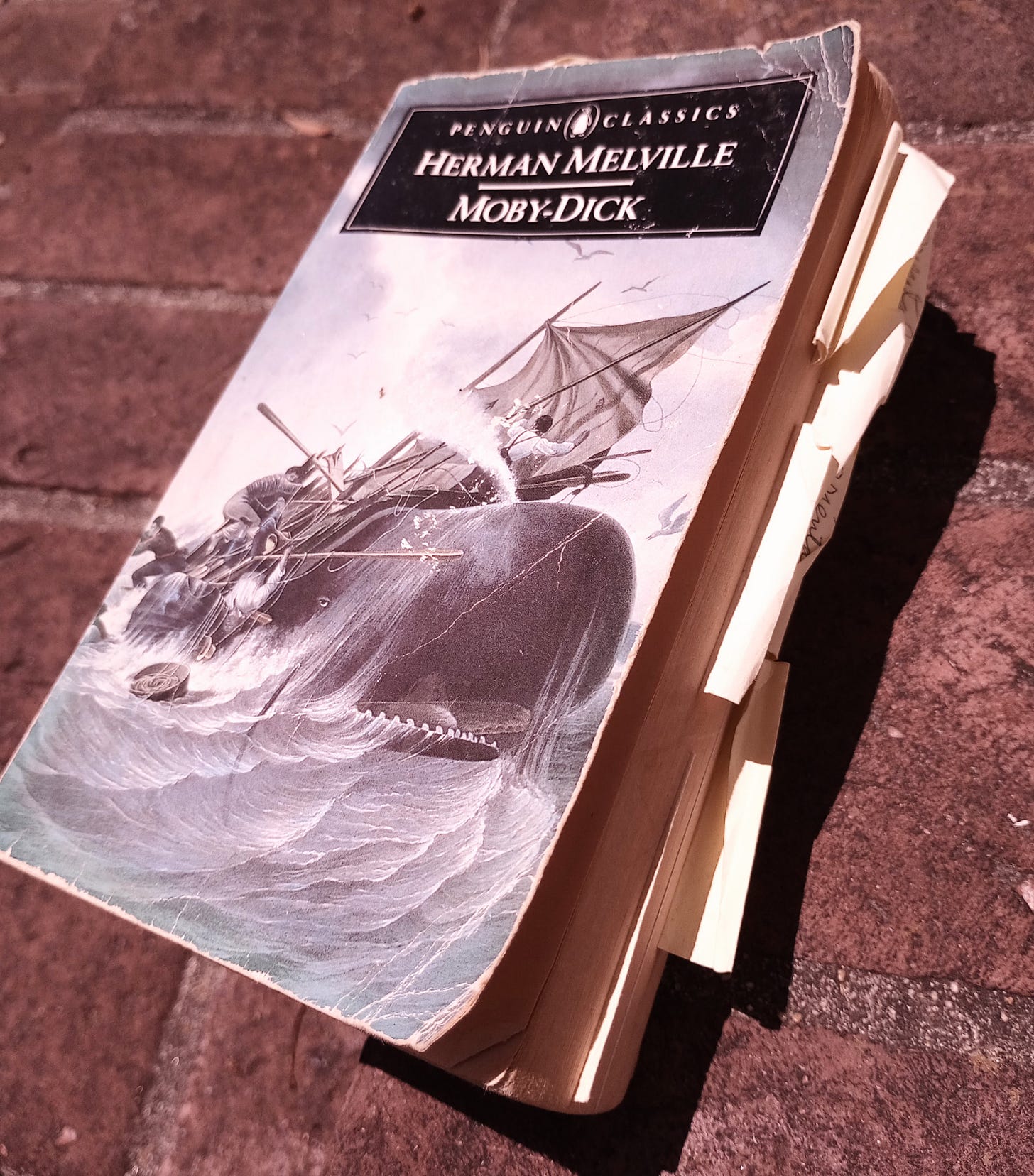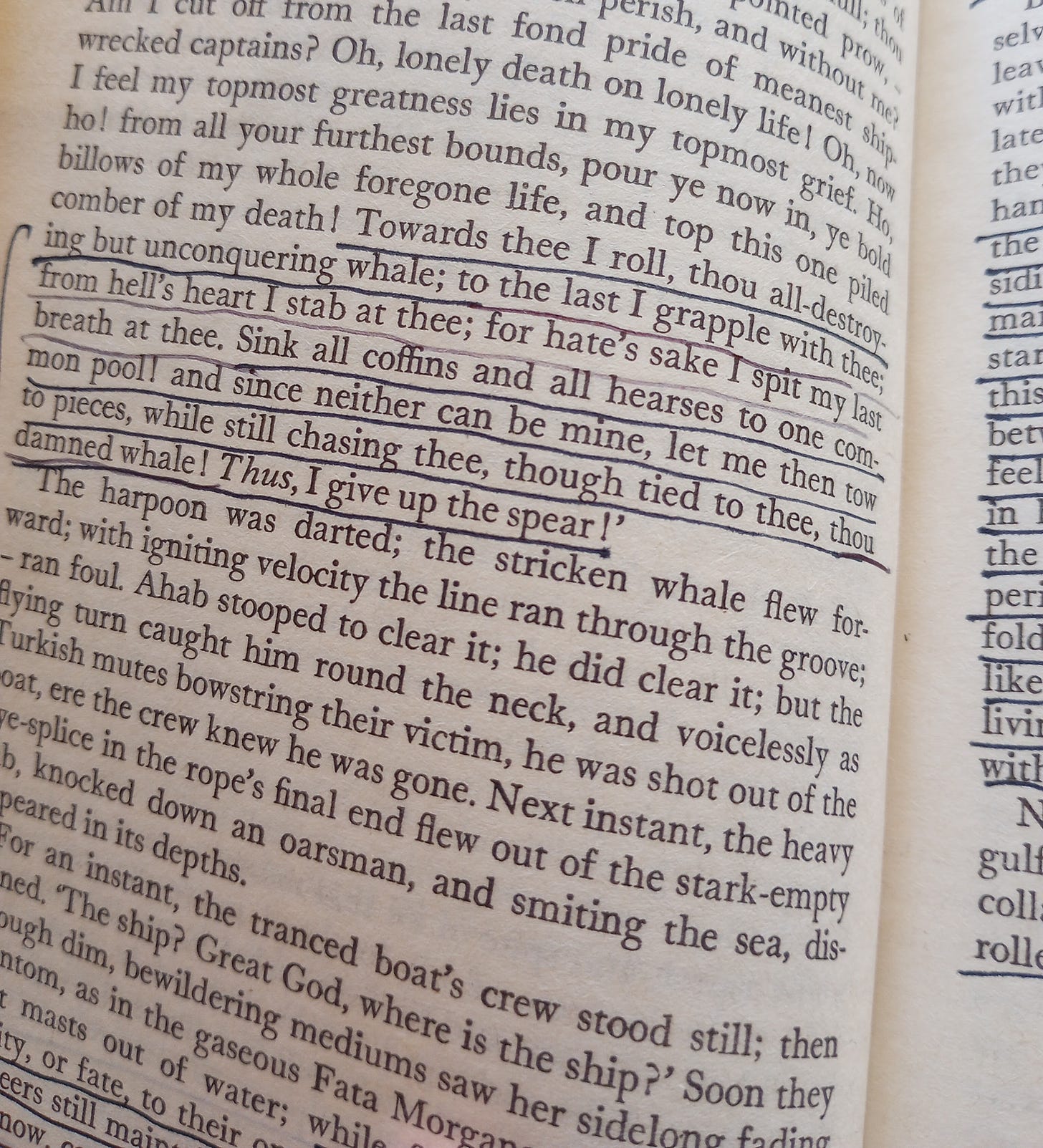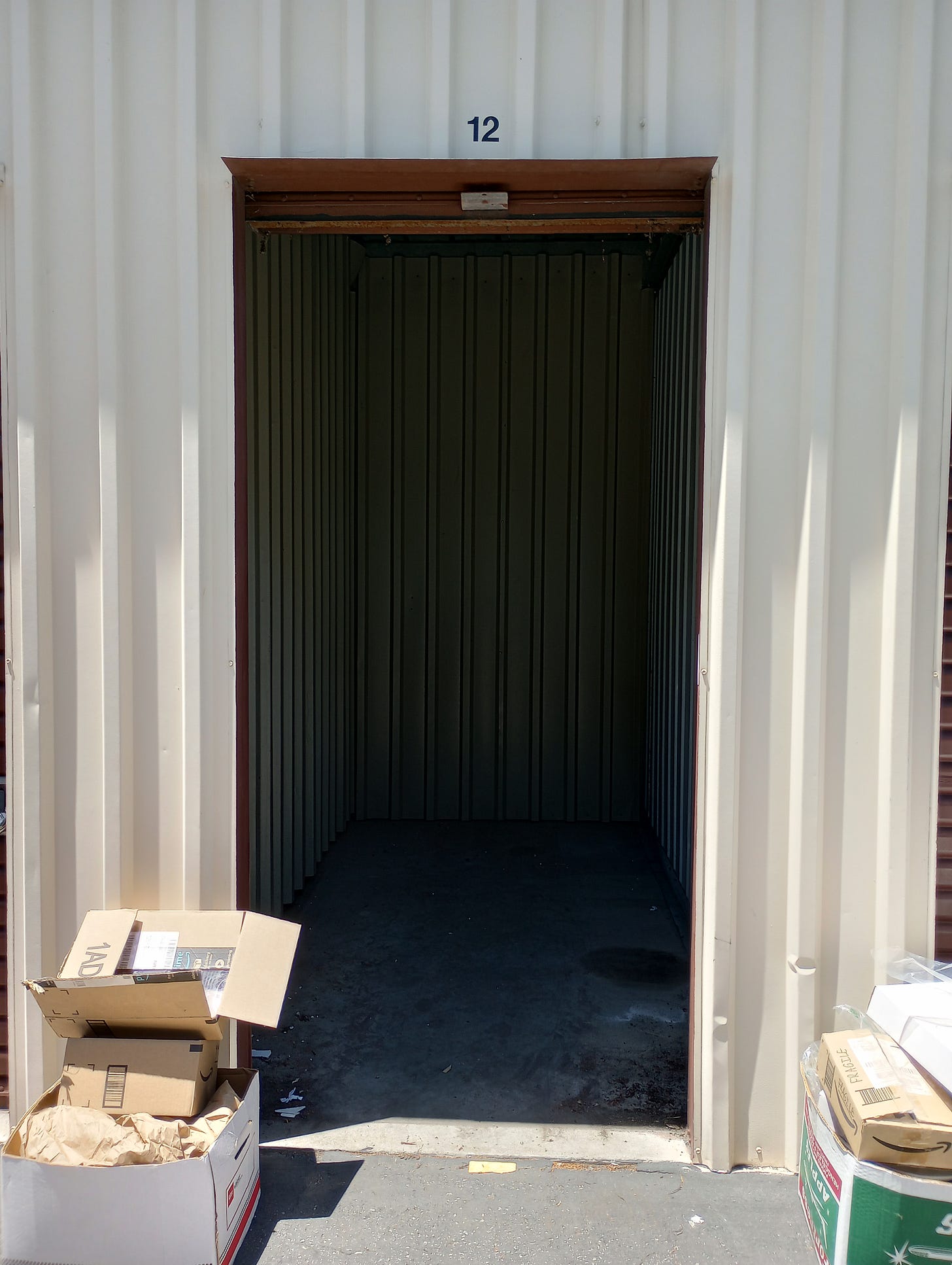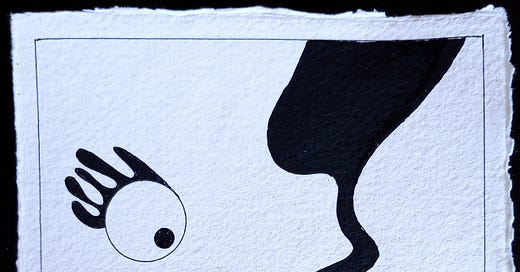Too Much Stuff, Too Little Space
#148: Minimalism, Siti Nur Iman x 2, Arshile Gorky, Jamal Robinson, Joshua Becker, Maria Hassabi, and DJ MntyFrsh.
HERE & NOW
“Minimalism.” Some people call it trendy; others call it a cult; still others think minimalism is just another way to signal virtue, etc. Yet minimizing my belongings is something I’m now considering,1 mainly because my body has been communicating to me: “You occupy a small space,” it says. “And there is too much stuff packed into the space.” Furthermore, “too much stuff collects dust, and you are extremely allergic to dust and pollen! Why are all these unread books on your shelves?” And finally, “Why are you hanging on to all these academic books when academia made you miserable?!”
Note that the book in the photo below is still stuffed full of the original Post-it notes I used to mark pages that I expected to be interrogated about.


I have never been rich, or upper, or even middle class—except for perhaps a few days during the late 1950s. I have always lived in humble abodes, cottages, small houses, a studio, one- and two-bedroom apartments, etc. But since my parents and my ex passed away, and I eventually sold the family house, I have been hauling around both my stuff and theirs and keeping it all in storage. My cottage is stuffed with items from my past, and it seems that everyday I keep amassing more stuff—made even more problematic by the fact that I keep making art!
My perspective is also influenced by the fact that I’m a renter in a high-rent area. Since I don’t own a house, there is always the nagging thought in the back of my mind that someday I’ll have to pack up my things and move elsewhere. The more you collect, the more you have to schlep in the future. And the older you get, the harder it is to move stuff.
That lifestyle may be coming to an end. First, my partner and I got rid of our cars, which we realized were becoming a big financial drain (especially after experiencing a couple of car and major car-part thefts that left us with big bills). Add to that the thought that our auto use was just contributing to the gas and oil industry that is ruining our climate. Still, that change to carlessness itself was difficult to deal with physically, psychologically, and emotionally. I’ve had to confront my inner ageist—the one whose first car was a spunky red Corvair compact in the 1960s2 that I drove as a teenager. I grew up infused with that (ultimately dangerous) American mindset of “independence” and autonomy at all costs . Therefore being carless equates to things like homelessness, being vulnerable, elderly, poor, and uncomfortably dependent on family and friends for certain types of transportation—even after I got myself an ebike.
But recently, I saw a positive side to “dependence” as a sharing of resources and as mutual aid.3 I’m learning how to be thankful, and I’m thinking that I could be more generous and sharing of what I do have, while considering what I truly need (rather than what I think I need).

Earlier this week we cleaned out and closed our storage unit after about a decade of paying rent on that temporary mausoleum of memories. Once again, a friend came forward to aid us with his vehicle. Feels good to let go. But wait—there is also sadness and regret as well as acceptance and relief. Acceptance recognizes that we all have to let go at some point. Having lived a fairly long life, I don’t need to carry all these items into old age. I will keep some photos, my parents’ letters (for my aforementioned book project) and a few tokens from loved ones, etc. But there’s plenty of crap I can jettison, too.
So I am in the process of slowly, painfully, and sometimes happily letting go of stuff, including books. Hey, I have hundreds of books in my Rakuten Kobo ereader and there is a good public library down the street. The only print books I’ll keep (beside my own published books) are those that are signed and/or gifted to me by friends and authors, or are important to me for some special quality of bookishness. The freebie boxes outside of the cottage will appear more frequently. Hopefully I will soon have more room to move, and my body will be able to “breathe.”
The question remains: how the hell does an artist—with all these canvasses, frames, paints, and reams of paper and collage scraps—live minimally?
RABBIT HOLE
Previously I’ve written about feeling compartmentalized, and letting the different parts flow together. Jazz vocalist Siti Nur Iman talks about reconciling all the different parts in “Lost But Happy” (see also the video of her singing “In My Solitude” in the Soundings section):
I’ve been focused a lot on contemporary 21st c. artists, but think I should post occasionally about artists from earlier eras. Arshile Gorky has always been one of my favorites:
Minimalist poet/artist Jamal Robinson has a Substack newsletter called Found. Check out his found and minimal poetic responses to writing by other authors.
Regarding that last question I posed in the Here & Now section, Joshua Becker has some useful ideas about decluttering as a artist:
Maria Hassabi’s performance piece “I’ll Be Your Mirror” incorporates human movement and stillness with image:
SOUNDINGS
Lovely sounds produced by local DJ MntyFrsh (also known as MinceyFresh), who I met (in the social media sense) on the Mastodon Instance MontereyBay.social. He also helps to promote events in both Monterey and Santa Cruz.
Siti Nur Iman sings “In My Solitude”4 with Amanda Lee on piano.
Thanks for reading Eulipion Outpost! Special thanks to readers who have donated here on Substack or in my Ko-fi page to support my efforts!
My Links List is now on an old-school Neocities site that I built.
Eulipion Outpost is a reader-supported publication. To receive new posts and support my work, consider becoming a free or paid subscriber.
. . . and doing.
It lost its spunk in the late 60s-70s, especially after Ralph Nader’s book, Unsafe at Any Speed: The Designed-In Dangers of the American Automobile, was released in November 1965.
In the Philippines, see also Maginhawa Community Pantry and Etniko Bandido. Locally, see Old Capitol Books (Monterey), Sub Rosa in Santa Cruz, and Food Not Bombs.
“In My Solitude” written by Duke Ellington in 1934, lyrics by Eddie Delange and Irving Mills.






I feel so much of this. Thank you for sharing your experiences as well as inspiration! Your blog/works always keep me on my toes and remind me to not just look at the past but also pay attention to so many incredible "current" creative things.
I read the Moby Dick cliff notes in 9th grade instead of the book. The teacher wrote "RIP" for my grade! But the book was too damn long and I could care less about that big white fish. I tried again a few years ago and only got about 30 pages in.